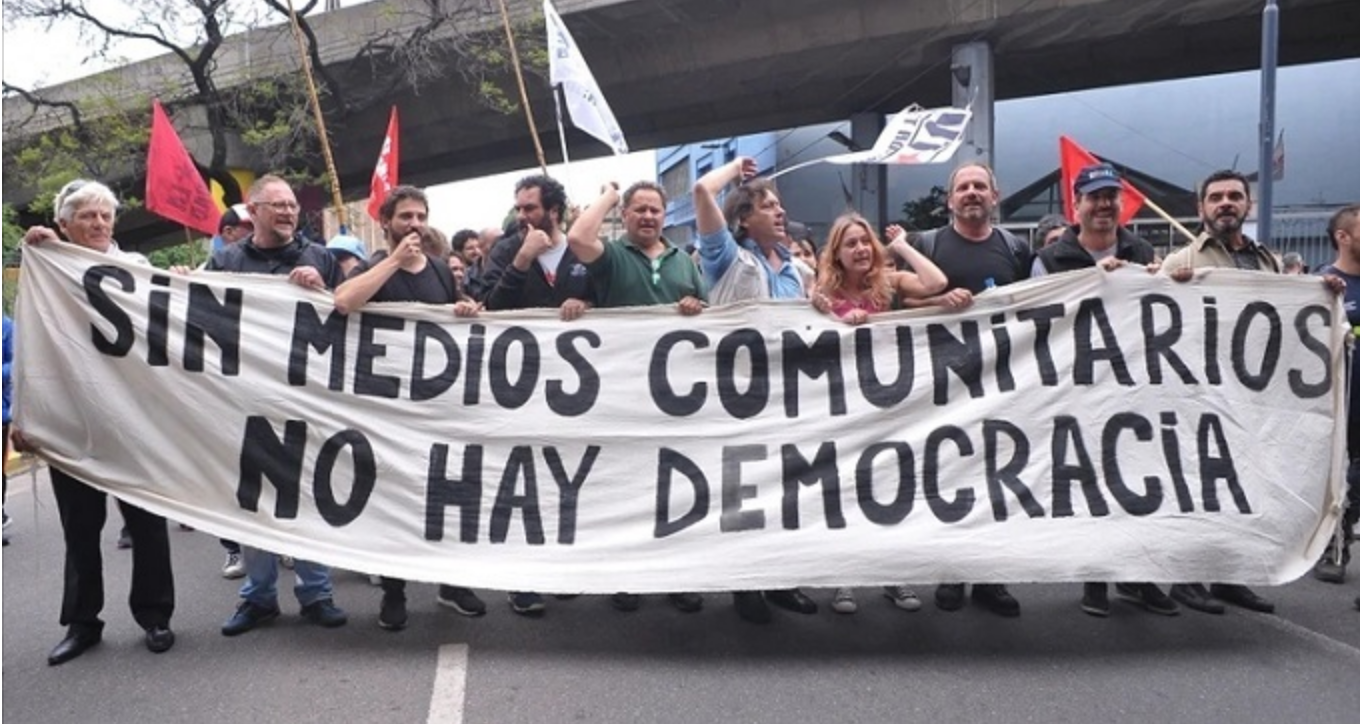On December 17 in Buenos Aires, people’s media and community media workers peacefully demonstrated in front of the headquarters of National Communication Agency (ENACOM) and then in the parking lot of Canal 13 (Channel 13), a television network owned by the Clarín Group. They were demanding the inclusion of Barricada TV and PARES TV, two alternative media channels, into the Cablevisíon grid and to denounce the attempt to silence community, alternative and non-profit media organizations.
Soon after the protest in the parking lot of Canal 13, the media of Clarín Group, the biggest media conglomerate in Argentina and other corporate media groups, began to spread the news that the protests were violent. They blamed Juan Grabois, the leader of the Confederation of Workers of the People’s Economy (CTEP), who along with other activists had joined the protest in solidarity with media workers.
“We repudiate the misrepresentation and manipulation of what was a peaceful demonstration and within the frameworks of law. The media lied when they said there was violence: no fence was forced open, nothing was broken, no physical force was used against anyone, nor was the channel taken, since the protesters did not even entered into the building. The parking lot where the protest was held was open and belongs to the city government; it is not a private property of Canal 13. There is not a single photo or video that holds the headlines, simply because they are lies that the mass media repeat in order to stigmatize the social leaders that were there, in particular, comrade Juan Grabois and to hide the fundamental problem related to the right to information, plurality of voices and freedom of expression”, reads the statement released by Comunicacion sin exclusions (Communication without exclusions), a platform bringing together media workers and activists.
The protests were held within the context of a law dispute that Barricada TV and PARES TV filed against Cabelvisíon and Telecentro, the two national cable-operators and internet service providing companies in Argentina for “violating the right to freedom of expression and the right of the audiences to be informed”. The precautionary measure is been discussed in the Federal Contentious Court No. 9.
Recently, Cablevisíon, also owned by the Clarin Group, blocked some licensed channels, including Barricada TV and PARES TV, from been aired for commercial reasons, breaching the law. Barricada TV already has an open digital television license obtained through public contest on channel 32.1. It is also authorized by the ENACOM and complies with all the formalities required by law. Meanwhile, PARES TV, a community channel of Luján, is a part of a local cable grid Telered. Both the TV stations belong to National Coordinator of Alternative Television (CONTA) and both managed to be qualified as “an open television station” and were authorized to begin their regular broadcasts in the month of June this year.
“Their exclusion only responds to the logic of censorship, since these channels comply with all the required formalities, are protected by the Audiovisual Communication Services Act and the resolutions of the ENACOM, and have also been incorporated into the programming of Open Digital Television (TDA)”, highlights the statement by Comunicacion sin exclusions.
Keeping their spirits high in their struggle against the attempt by capitalists to silence people’s media, the workers of Barricada TV, PARES TV and other associated organizations and media units said: “For the right to exist with complete legality, to be an option that guarantees the plurality of voices against the concentration and to exercise the right to communication without further discrimination or exclusions, we affirm: without community media, there is no democracy”.





